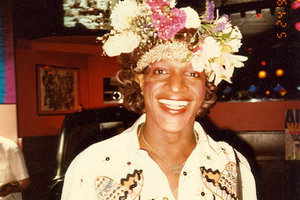Marsha P. Johnson and the
Quest for LGBTQ+ Liberation






In their newfound home, Marsha assumed the identity of a drag queen. Humble to his background, Johnson's drag acts were not sprinkled with extravagant dressing and luxurious jewelry. Instead, Johnson's act used flowers to drab over their clothing, often bought from hand-me-down departments. Stonewall Inn, a gay only bar, allowed Marsha to enter the premises, paving the way for trans visibility within the LGBTQ+ community. During the preceeding riots, Johnson was highlighted as one of the members staunchly defended police forces. Many tales over the years speak of Marsha throwing a shot glass at the police or a brick, shouting "I got my civil rights". While the validity of these statements are disputed, Marsha certainly became a leader within the LGBTQ+ community due to their courageousness against the police during the riots.
Marsha P. Johnson was a prominent figure in the fight for civil rights in the LGBTQ+ community. As a black individual and a gay individual, Marsha P. Johnson used both intersectioanlities to create a world where black lesbian, gay, transgender, and gender noncomforming people were able to live their respective lives. Marsha P. Johnson adopted black feminism, denying gender roles by dressing like the opposite sex. Marsha bent the expectations of whay blackness ought to be, paving the way for traditional masculinity to be abolished. Masculinity, often enabling the opression of black women, was redefined to allow way for alternative methods of maleness within the community.